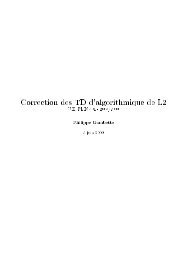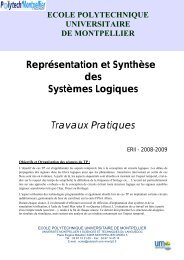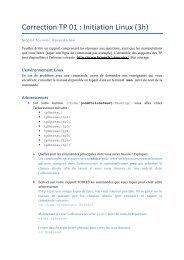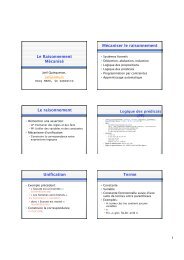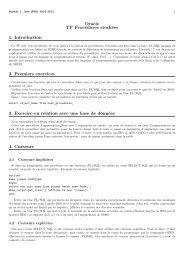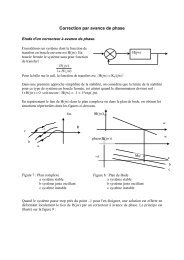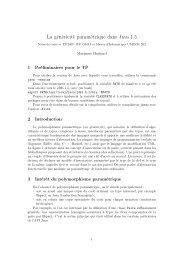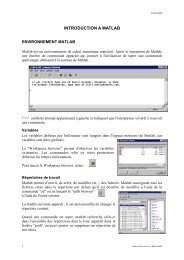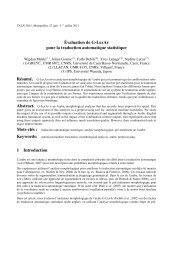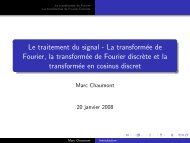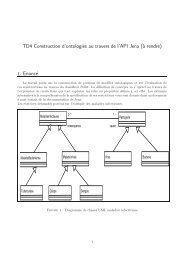Evaluating User Experience in Games: Concepts and Methods - Lirmm
Evaluating User Experience in Games: Concepts and Methods - Lirmm
Evaluating User Experience in Games: Concepts and Methods - Lirmm
You also want an ePaper? Increase the reach of your titles
YUMPU automatically turns print PDFs into web optimized ePapers that Google loves.
108 G. McAllister <strong>and</strong> G.R. White<br />
This chapter discusses the video game development processes <strong>and</strong> practices that<br />
studios currently use to achieve the best possible user experience. It will present<br />
three case studies from game developers Disney Interactive (Black Rock Studio),<br />
Zoë Mode, <strong>and</strong> Relentless Software, all based <strong>in</strong> Brighton, United K<strong>in</strong>gdom. Each<br />
case study will detail their game development process <strong>and</strong> also how this <strong>in</strong>tegrates<br />
with the user experience evaluation. In an attempt to represent a balanced view of<br />
state of the art <strong>in</strong> game development practices, the game studios chosen focus on<br />
different game genres <strong>and</strong> target user groups.<br />
Reader’s takeaway:<br />
– Three concrete case studies of how video games are developed at world-lead<strong>in</strong>g<br />
studios<br />
– Clear underst<strong>and</strong><strong>in</strong>g of the game development life cycle<br />
– Underst<strong>and</strong><strong>in</strong>g of <strong>in</strong>dustry term<strong>in</strong>ology, lay<strong>in</strong>g the foundations for a common<br />
language of user experience<br />
– Underst<strong>and</strong><strong>in</strong>g of <strong>in</strong>dustry needs, <strong>in</strong> terms of what they expect <strong>and</strong> require from<br />
usability <strong>and</strong> user experience evaluations<br />
In summary, the key contribution that this chapter makes to the games usability<br />
community is an underst<strong>and</strong><strong>in</strong>g of the game development process <strong>and</strong> how these<br />
studios currently <strong>in</strong>volve the end user.<br />
7.2 Previous Work<br />
Although the topic of evaluat<strong>in</strong>g video game user experience is ga<strong>in</strong><strong>in</strong>g more attention<br />
from both academia <strong>and</strong> <strong>in</strong>dustry, it is not a particularly new area. One of<br />
the earliest papers (Malone 1981) discusses which features of video games make<br />
them captivat<strong>in</strong>g <strong>and</strong> enjoyable to play. Today, this discussion still cont<strong>in</strong>ues, <strong>and</strong><br />
there is active research <strong>in</strong> determ<strong>in</strong><strong>in</strong>g which game features to evaluate <strong>and</strong> which<br />
approaches should be used.<br />
Current approaches to evaluat<strong>in</strong>g the usability <strong>and</strong> user experience of video<br />
games have centred around themes such as mapp<strong>in</strong>g established HCI methods<br />
to video games, ref<strong>in</strong><strong>in</strong>g these methods, identify<strong>in</strong>g guidel<strong>in</strong>es <strong>and</strong>, perhaps most<br />
importantly, evaluat<strong>in</strong>g the overall player experience. A summary of relevant<br />
literature will be discussed below.<br />
7.2.1 Traditional HCI Approaches<br />
Due to the generic nature of the majority of usability methods, researchers<br />
have analysed how exist<strong>in</strong>g usability methods can be applied to video games<br />
(Jørgensen 2004). Others such as Cornett have employed usability methods such<br />
as observations, questionnaires, th<strong>in</strong>k aloud <strong>and</strong> task completion rate to determ<strong>in</strong>e




